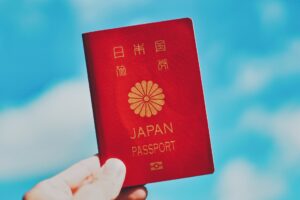How to Prepare for a Smooth Naturalization Process
Applying for Japanese naturalization involves several requirements, and even if you meet the residence requirement, your application may face delays if you are not properly prepared.
- What documents do I need?
- Do unpaid taxes or pension contributions affect my application?
- Is my visa or job stable enough for approval?
In this article, we will explain how to prepare for a smooth naturalization process and what to check before applying!
1. Key Preparations for Naturalization
📌 During the screening process, officials will closely examine whether you have a stable life in Japan. Be sure to check the following points:
✅ Maintaining a stable visa status
✅ Checking your tax payment records
✅ Verifying pension and health insurance payments
✅ Demonstrating financial and residential stability
✅ Checking for any criminal or traffic violation history
Ensuring these aspects are in order will make the application process smoother.
2. Managing Your Visa Status: Which Visa is Best for Naturalization?
A stable visa status is essential when applying for naturalization.
| Visa Type | Suitable for Naturalization? | Key Points |
|---|---|---|
| Permanent Resident | ✅ Best option | No visa renewal needed, highly stable |
| Long-Term Resident | ✅ Good option | Long-term residence, suitable for application |
| Work Visa (e.g., Engineer, Humanities, International Services) | ⚠ Possible | Employment stability is required |
| Spouse of a Japanese National | ✅ Good option | After 3 years of marriage + 1 year in Japan, eligible for a shorter period |
| Student / Technical Intern Visa | ❌ Not eligible | Time spent under these visas is not counted |
💡 Key Takeaways:
- Permanent and Long-Term Resident visas are the most stable and make the process smoother.
- If you have a work visa, you need to prove job stability.
3. Checking Your Tax Records: No Unpaid Taxes Allowed!
📌 Unpaid taxes can significantly impact your naturalization application.
Officials will check your payment history for the following:
✅ Resident Tax (住民税) – Paid to the local city/ward office
✅ Income Tax (所得税) – Deducted from salary for employees; self-reported for freelancers
✅ Property Tax (固定資産税) – If you own real estate
💡 Things to Check:
- Ensure you have paid your taxes in full for at least the past 3–5 years.
- If you had any late payments, prepare a reasonable explanation.
- Freelancers should confirm they have filed accurate tax returns.
Paying taxes on time shows that you are financially responsible and capable of living stably in Japan.
4. Confirming Pension and Health Insurance Payments
📌 Being enrolled in Japan’s social insurance system is another key factor in naturalization.
✅ Are you paying into the National Pension (国民年金) or Employee Pension (厚生年金)?
✅ Are you enrolled in National Health Insurance (国民健康保険) or company health insurance?
💡 Things to Check:
- You must submit at least two years' worth of pension payment records.
- Self-employed individuals must ensure they are paying National Pension and Health Insurance.
- For company employees, pension and health insurance are usually deducted from their salary.
5. Proving Job, Housing, and Family Stability
📌 Naturalization officials will assess whether you can continue living in Japan stably.
✅ Proof of stable employment (job certificate, income proof, etc.)
✅ Secure housing (rental contract, homeownership documents, etc.)
✅ Stable family relationships (marriage, children, dependents, etc.)
💡 Things to Check:
- Frequent job changes may raise concerns about stability.
- If your income is unstable, having savings or assets can help demonstrate financial security.
6. Checking for Criminal and Traffic Violation History
📌 Your criminal record and history of legal compliance will be examined.
✅ Have you ever been convicted of a crime? (Even minor offenses can impact your application.)
✅ Have you committed multiple traffic violations? (Especially DUI or driving without a license.)
💡 Things to Be Aware Of:
- Fines or arrest records may negatively impact your application.
- Too many traffic violations could indicate a disregard for Japanese laws.
If you have any past violations, it’s best to consult with the Legal Affairs Bureau (法務局) beforehand to explain your situation.
Summary
🔹 Maintain a stable visa status (Permanent or Long-Term Resident is best).
🔹 Ensure all taxes are paid, and check your records for the past 3–5 years.
🔹 Confirm that you have no unpaid pension or health insurance contributions.
🔹 Prove your financial, housing, and family stability.
🔹 Check for any past criminal or traffic violations and prepare explanations if necessary.
Since naturalization is a long process, early preparation is key to success. By organizing your documents and records in advance, you can avoid unnecessary delays and increase your chances of approval.
In the next article, we’ll discuss “Case Studies of Naturalization and Key Points Checked During the Screening Process.”
💬 Questions or Concerns?
✔ “I accidentally missed a tax payment once. Will it affect my application?”
✔ “I recently changed jobs. Will that cause problems for naturalization?”
If you have any questions about the process, feel free to ask! 😊
